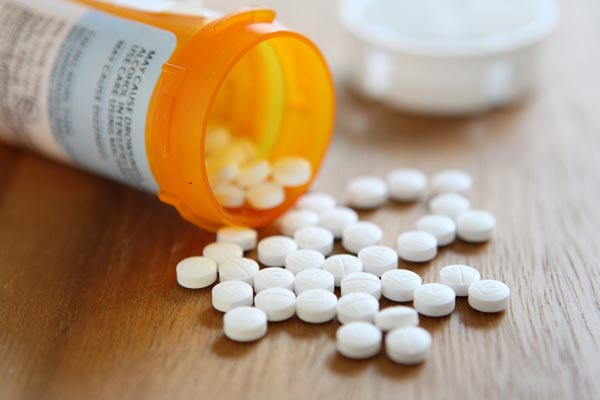Substance abuse and addiction go hand-in-hand, but there are various issues you may experience if you develop an addiction. It’s important to understand these issues, as your understanding will help you along your journey to recovery.
In this article, we’re taking a closer look at the five most common addiction issues.
Most Common Addiction Issues
Addiction is a disease that affects nearly 10 percent of the United States, with an estimated 24.6 million addicts, according to the National Institute on Drug Abuse.
That doesn’t include the number of nicotine addicts or alcoholics but focuses on illicit drugs. Alcohol accounts for 17.6 million cases of addiction, and up to 40 percent of the country’s hospital beds are busy dealing with the consequences of alcohol poisoning, per the National Council on Alcoholism and Drug Dependence.
Addiction occurs in several different ways, including:
- Substance abuse (illicit and licit substances)
- Gambling
- Shopping
- Sex
- Video games
- And more
Addiction is a prevalent issue in society – by the sheer size of the problem, every single American is affected in some shape or form by addiction, either through themselves, a friend, a relative, or a loved one. That makes it important for every American to understand addiction and the addicts that suffer under it.
It’s not a matter of willpower – it’s a unique brain disease that starts when an individual takes a drug or commits to behavior that alters the way they feel pleasure, limiting happiness to the behavior they’re addicted to. To some, a can of beer a day isn’t an addiction and doesn’t change their behavior toward others.
To an alcoholic, that can of beer can begin an unstoppable, reoccurring behavioral downward spiral, alienating friends and coworkers while concerning relatives. Drug addiction, in particular, is often based on how susceptible people are to the effects of a dopamine overload rather than the drug itself, with the NIDA citing factors such as a person’s genetic predisposition towards mental diseases, environmental factors, and early use of drugs
The frequency and amount of drugs used do not matter as much as how a person is changed when they’re on their drug and off it. Yet despite how common and devastating the issue is, only 11 percent of Americans with addiction problems received treatment in 2010, according to DrugFree.org. That brings us to the first common issue surrounding addiction.
Here are the 5 most common addiction issues.
Recognizing the Problem
The first and most common, single most important issue for beginning the recovery process is accepting that a problem exists. Countless Americans deal with addiction symptoms long before they realize they’re addicted. It’s even harder for their loved ones to make the connection without careful observation.
Addiction, as per Healthline, manifests itself in a lack of control, decreased socialization, excessive gambling or risk-taking, and physical sickness or extreme moodiness when off a substance. Even if you see all these signs in a family member, getting them to accept that they’ve got a problem is not easy in many cases. Part of addiction is the ability of the brain to justify certain behaviors and go out of its way.
If you think you or someone you know is suffering from an addiction, it’s important to contact a local doctor or treatment center and prepare for the first stages of rehab and recovery.
Dealing with Stigma
Despite how common addiction is, no one wants to admit that they’re suffering from it. That’s because addiction is still misunderstood as a sign of moral weakness or as a sign of character fault rather than the medical problem it is.
The Huffington Post called addiction “America’s most neglected disease” and notes that a survey reveals that one-third of Americans still believe addiction to be related to willpower or a lack of self-control.
A lack of education and practical enforcement of the proven science is at fault for the growth of stigma against drug addicts. Drug addicts, in turn, live surrounded by that stigma – so they either deny their problem for as long as possible or accept that their addiction is a result of their failures, topping off serious substance abuse and behavioral issues with mental conditions like anxiety, depression, and suicidal thoughts.
One study notes that seeking treatment and regular interventions is a good way to lessen the impact of self-stigma. In particular, group-based acceptance and commitment therapy may help a person suffering from addiction become more accepting of themselves.
Finding Help
Day in and day out, people are fighting to find ways to lessen the effects of addiction in society – but on a personal level, it’s important for every affected American to understand and encourage recovery from addiction without judgment or blame.
Another issue, then, lies in finding help. Not just in the form of medical experts, trained psychological staff, and treatment centers, but right at home or in the community. US News states that a necessary part of proper drug recovery lies in understanding the terrifying power of triggers, especially early on after rehab.
Seeing the Light Past Rehab
The fourth common issue facing addicts is a misconception of how recovery works. Detoxification and rehab may be the first and most intensive steps to getting “clean,” but staying sober and avoiding your addiction triggers requires years of steady work and behavioral therapy.
The end of rehab isn’t the end of recovery; it’s simply the beginning of your road to taking back control over your life after the addiction. But you shouldn’t rely alone on yourself to do so. The road after rehab isn’t lonely or unguided and scary – it can be clear and safe with the right help.
Forgiving a Relapse
No one is perfect. And the addiction we’ve come a long way to fight will always bear some mark on a person’s psyche. As you battle your way towards permanent sobriety, the risk of a relapse – no matter how small – exists. Drugs abuse and rewire the brain’s reward center, taking control of our behavior through the usurpation of some of our most basic instincts. When confronted with memory triggers – like drugs or locations of prior drug use – recovering addicts are at great risk of developing a relapse, especially within the first three months, according to Psychology Today.
It’s vitally important for recovering addicts to understand that relapses happen, and they do not spell the end of recovery or doom it. The NIDA notes that statistics from 2000 show that relapses occur in 40-60 percent of all cases during the first year. Some sources state even higher relapse rates of 70-90 percent, depending on the drug of choice. According to these numbers and other evidence, the organization considers and treats drug abuse as a mental chronic disease.
Chronic diseases, like diabetes and hypertension, are rarely entirely reversed. But they can be managed to the point of having little to no effect on a person’s life and thus being successfully treated. After rehab, withdrawal, and with the right support system, your brain’s chemistry can slowly return to what it was before the addiction began – but that isn’t to say that if you slip and find yourself using again, everything you will have achieved up to that point will have been for naught.
Instead, positivity is key. Relapses aren’t a sign of weakness or an inability to deal with addiction – they are a stepping stone on the larger road to recovery. Moving past them is infinitely more helpful than dwelling on them.
The single largest connecting issue here is that people don’t understand addiction. The gap between what science knows and what is being practiced/taught is far too large to ignore and needs to be closed quickly. Addiction is a disease, not a lifestyle choice. Once you understand and internalize that and the other issues on this list, you are several large steps closer to successfully – and eventually, permanently – dealing with your addiction and its consequences on your life.
Sources:
- National Institute on Drug Abuse. Trends & Statistics. National Institute on Drug Abuse. Published February 6, 2020. Accessed October 13, 2022. https://nida.nih.gov/research-topics/trends-statistics
- Miller S. Alcohol: Abuse, types, symptoms and alcoholism | recovered.org. recovered. Published June 1, 2021. Accessed October 13, 2022. https://recovered.org/alcohol
- National Institute on Drug Abuse. Understanding Drug Use and Addiction DrugFacts. National Institute on Drug Abuse. Published June 6, 2018. Accessed October 13, 2022. https://nida.nih.gov/publications/drugfacts/understanding-drug-use-addiction
- Psychology Today. Relapse | Psychology Today. Accessed October 13, 2022. https://www.psychologytoday.com/us/basics/relapse
- Sack D. Why Relapse Isn’t a Sign of Failure | Psychology Today. Published October 19, 2012. Accessed October 13, 2022. https://www.psychologytoday.com/us/blog/where-science-meets-the-steps/201210/why-relapse-isnt-sign-failure





